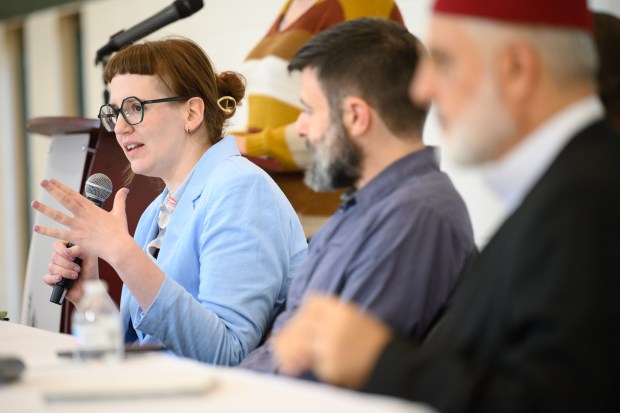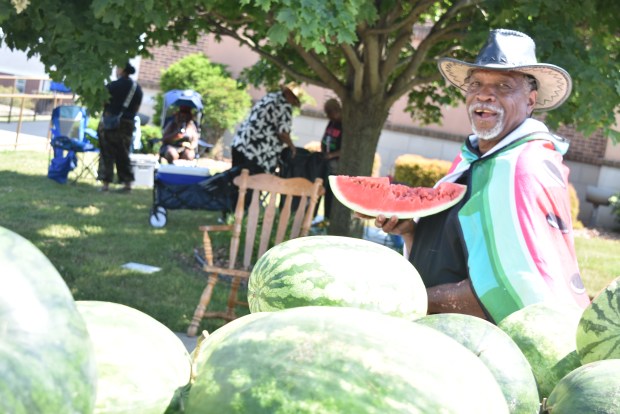It was an evening of faith, food and fellowship as some 100 folks from a variety of religious and ethnic backgrounds came together.
Participants from throughout Northwest Indiana gathered on Thursday to dine together at a potluck dinner, to promote social justice and to build strong communities.
The inaugural gathering of what is called Interfaith Potluck, Building Bridges Coalition was held at the Northwest Indiana Islamic Center in Merrillville.
The purpose of the gathering was to bring about better understanding and to eliminate the divisiveness among people in the area no matter what their religious beliefs or backgrounds, event spokesman Ferass Safadi said.
“This is the first event with plans to hold it quarterly and possibly bring it back in October,” Safadi said.
Jawad Nammari, a youth volunteer at Northwest Indiana Islamic Center, called it a joint effort between communities.
“We’re a people of peace. We’re a people of love and justice,” Nammari said.
Those in attendance had been encouraged on the center’s website to bring a dish to share.
“This special evening is more than just a meal — it’s an opportunity to connect across faiths, build meaningful relationships, and work together toward greater social justice in our communities,” the website said.
Religious leaders who spoke at the meeting included Rabbi Diane Tracht of the Temple Israel in Gary; Iman Mongy El-Quesny of the Northwest Indiana Islamic Center; Pastor Rameem Jackson of St. Timothy Community Church in Gary; and the Rev. Tom Bozeman of the First Unitarian Church of Hobart Calumet Region.
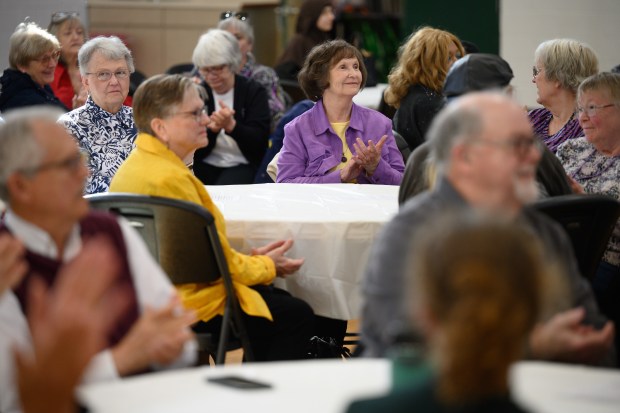
The Rev. Leah Peksenak of the Hobart First United Methodist Church and Marquette Park United Methodist Church in Gary emceed and posed questions to the religious leaders.
“What we are hoping is that this is the first of many conversations,” Peksenak said.
Attendees, including Sarita Villarreal of Hobart and Maryalice Larson of Valparaiso, were also given the chance to ask questions of the religious leaders and to voice their opinions.
The thought-provoking questions Peksenak asked of the religious leaders included their feelings on social justice, what social justice tradition they were most proud of, their biggest challenge and in what areas were improvements still needed.
Although responses from the religious leaders remained civil and thoughtful, talk included continuing unrest in the world including between Israel and Palestine and Ukraine and Russia.
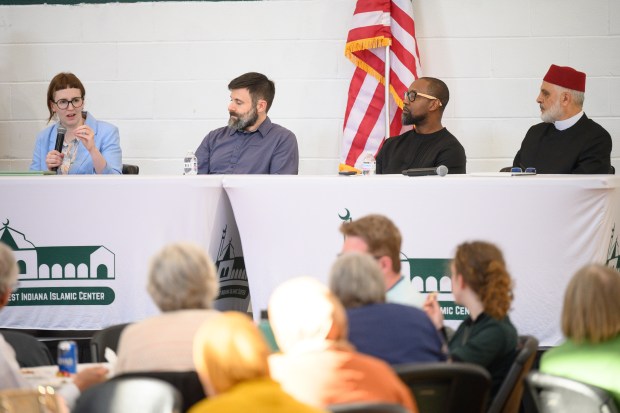
Rabbi Tracht said for her Gaza and Israel would be the “elephant in the room.”
“The starvation of those living in Gaza is an abomination,” Tracht said.
Iman Mongy El-Quesny, a native of Egypt, said he was living in the Middle East in 1979 when the Egypt-Israel peace treaty was signed by Anwar Sadat, the president of Egypt, and Menachem Begin, Prime Minister of Israel.
“We cherish that peace accord. We lived together. We are cousins,” El-Quesny said.
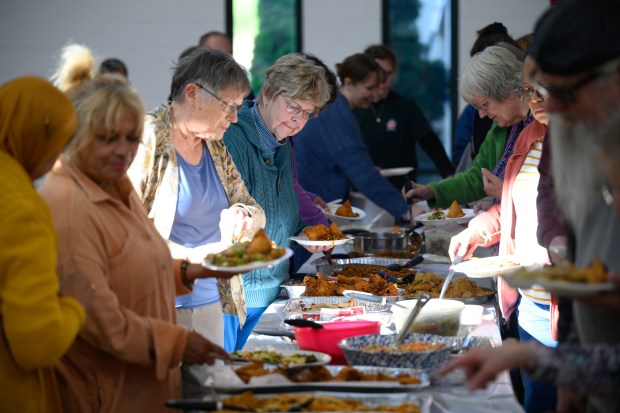
He said he blames politicians for creating problems between people.
“The issue is politicians. They are small in number but loud in voice,” he said.
El-Quesny encouraged those in attendance not to be silent and to love themselves first.
“We are all the children of Adam. We are all the children of God. He wants us to cherish one another and to love one another. That’s what God wants from us,” El-Quesny said.
Deborah Laverty is a freelance reporter for the Post-Tribune.


